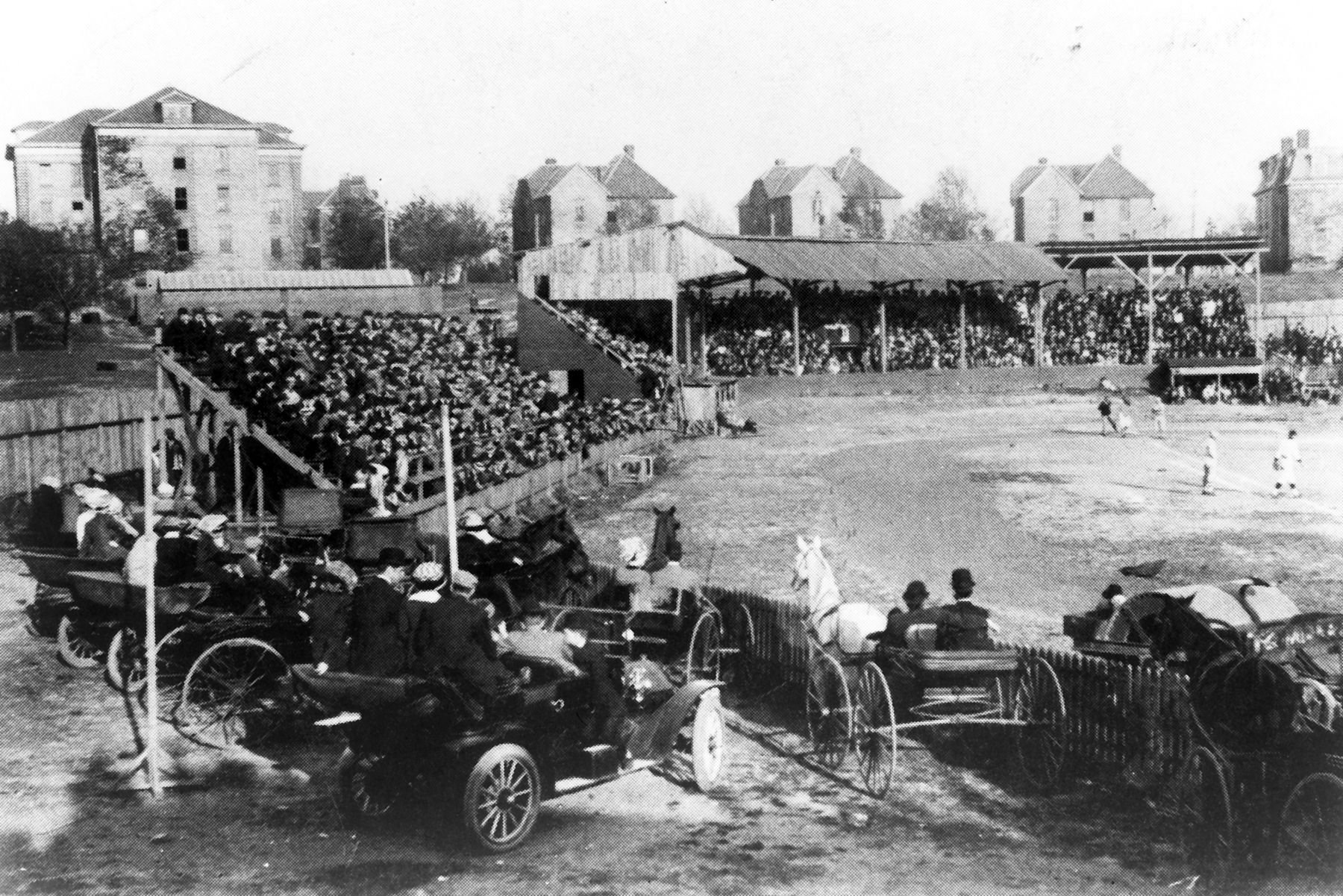Our Heritage
Baseball And Easter Monday - A North Carolina Tradition

If you are over 40 and have lived most of your life here in North Carolina, you likely remember that Easter Monday was a beloved state holiday. It was a time for Easter egg hunts, spring picnics, and the first beach trip of the year. Few people realized that the holiday’s origins had little to do with Easter, but rather baseball. The tradition of collegiate baseball in North Carolina dates to 1891 when Wake Forest and North Carolina Agricultural and Mechanical College, now NC State University, met for the first intercollegiate baseball game in the state. Ten years later, on April 8, 1901, the two teams played on the Monday following Easter Sunday. That was the first of an annual matchup that would continue to be met on the day following Easter for the next 55 years. By 1908, the Easter Monday game garnered an unheard-of crowd of more than 2,500 – at that time, the largest crowd to ever gather in the state for a sporting event. During these early years of baseball, the Wake Forest baseball field, also used by the football team, was the 400 block of Faculty Avenue, now North Main Street. If the address seems familiar to some of you, it is because today the Calvin Jones House and the Wake Forest Historical Museum occupy that block. The Easter Monday tradition continued to grow. Before long, the railroad added cars to the trains that ran between Raleigh and Wake Forest to handle the crowds of fans heading to the game held in either school’s stadium. Over the next few years, schools and government offices closed so that children and politicians alike could attend what has been called North Carolina’s version of the Kentucky Derby. Ladies dressed in their finest, men wore suits and ties, and everyone had to have a hat. In the years before there was an ACC basketball tournament, it was without a doubt the social and athletic event of the season.
Newspapers, primarily The News and Observer, repeatedly ran editorials condemning the practice of closing offices and schools to attend a ball game. Of course, the newspaper was owned by a family with a long connection to the University of North Carolina at Chapel Hill. Let’s face it – the only way a Carolina fan is going to appreciate a game between NC State and Wake Forest is if both teams could lose at the same time. By the 1930s, NC State and Wake Forest alumni, especially those from the law school, dominated the North Carolina General Assembly. The bipartisan sentiment between the two alumni groups was clear. Something had to be done to solve the issue that threatened the annual and near-sacred event. The Monday following Easter must become a holiday. In 1935, the North Carolina General Assembly made Easter Monday a state holiday. Few would oppose extending the most holy of Christian holidays. The state of North Carolina and the United Kingdom were the about the only places in the world that celebrated the day following Easter Sunday as an official holiday.
For years, the ballgame continued to be played on Easter Monday and both schools produced several baseball legends. In 1955, Wake Forest won the College World Series. The last game between the two local rivals was scheduled for the Monday following Easter in the spring of 1956. In May of that year, Wake Forest College moved 110 miles west to Winston-Salem, and the tradition came to an end. Although NC State and Wake Forest continue to meet for baseball, no longer is the game played on the day following Easter. But what about the holiday? Only in North Carolina did Easter Monday remain an official observance of Easter for another 31 years. Under pressure from the banking industry and other worldwide businesses, the General Assembly moved the official state holiday to Good Friday in 1987. The change was met with considerable opposition from North Carolinians who had no association with the two schools or even knew that a baseball game was the origin of the Monday holiday.
By the way, if you are wondering who won that first game, it was Wake Forest. And for the final game in 1956, almost poetically, it was rained out.
Ed Morris
Executive director of the Wake Forest Historical Museum & Wake Forest College Birthplace.

